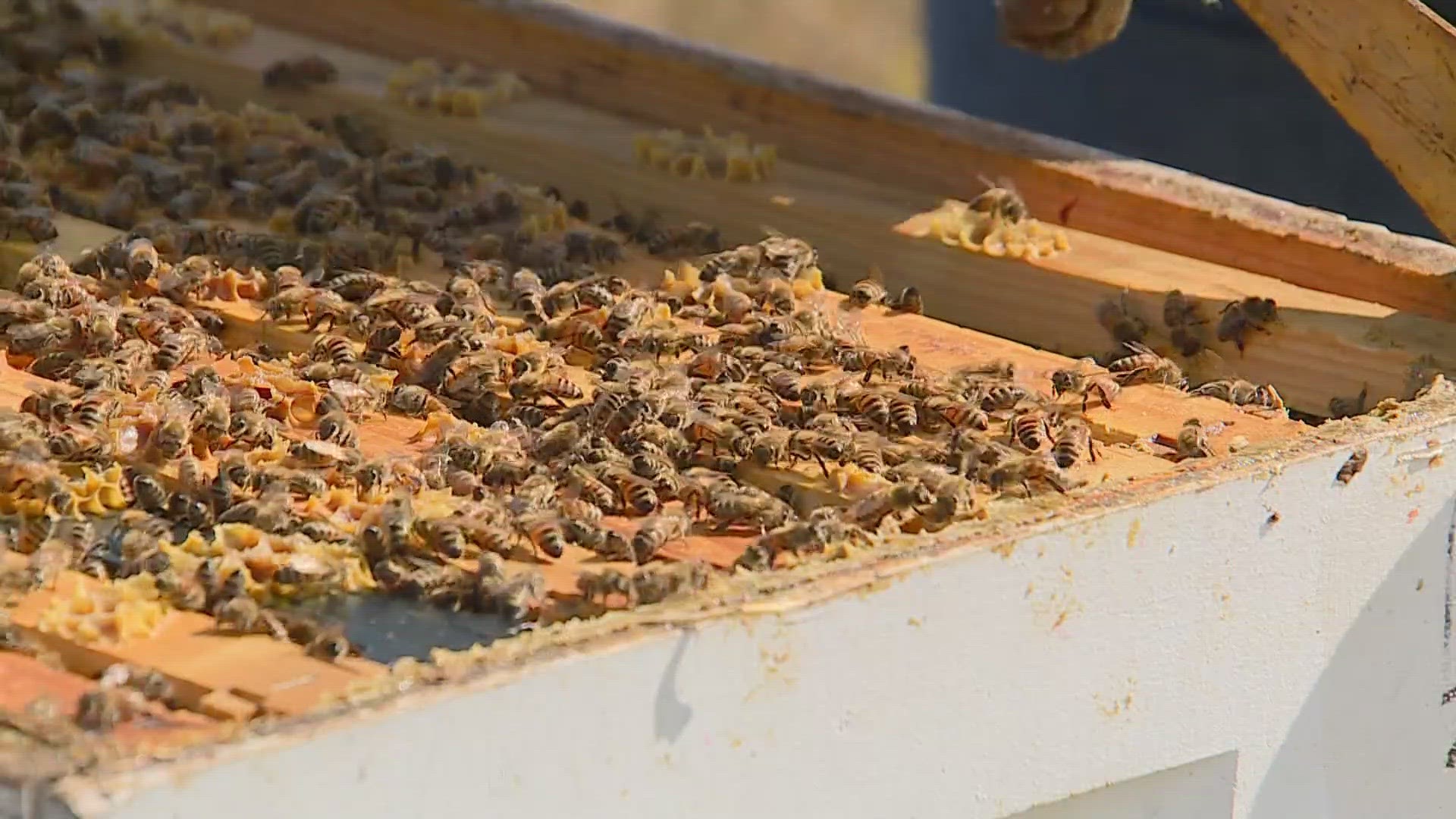DENVER — Hidden among the tall grasses at Four Mile Historic Park in the heart of Denver a harvesting operation was underway last week. Lorna McCallister, a master beekeeper with Butterfly Pavilion, oversaw the operation.
"We have our beehives set up around the Denver metro area," McCallister pointed out.
McCallister wants the hives at Four Mile Historic Park to teach visitors valuable lessons about our pollinators.
"A lot of people come to visit and so we're able to talk about the importance of beekeeping, the importance of pollinators, and what they do for our food systems and our ecosystems," she said.
Every August, around this time, beekeepers harvest honey from the hives. Butterfly Pavilion has around 30 beehives located around the Denver metro area.
The frames are then taken to Local Hive in Greeley where the honey is extracted and bottled and sold at Butterfly Pavilion's gift shop.
McCallister hopes the honey will remind people that our climate is changing. And it's changing faster than many pollinators can adapt.
"Last year across the US there was almost a 50% loss of hives," McCallister said. "So it is affecting them."
The pollinators help fertilize plants and crops.
"Like pumpkins, apples, most of the food crops that are the best food that we eat, come from pollinators," said McCallister who hopes her hives will encourage people to open their hearts and help out the bees.
One way to do that is in your landscaping.
"Instead of just having a grass lawn, which is a food-desert for pollinators, it's really important to plant native plants so that they have better nutrition," she suggested.
Another way to help out the bees is to reduce pesticide-use in your yard.
In other words, be a bee advocate.
SUGGESTED VIDEOS: Colorado Climate

